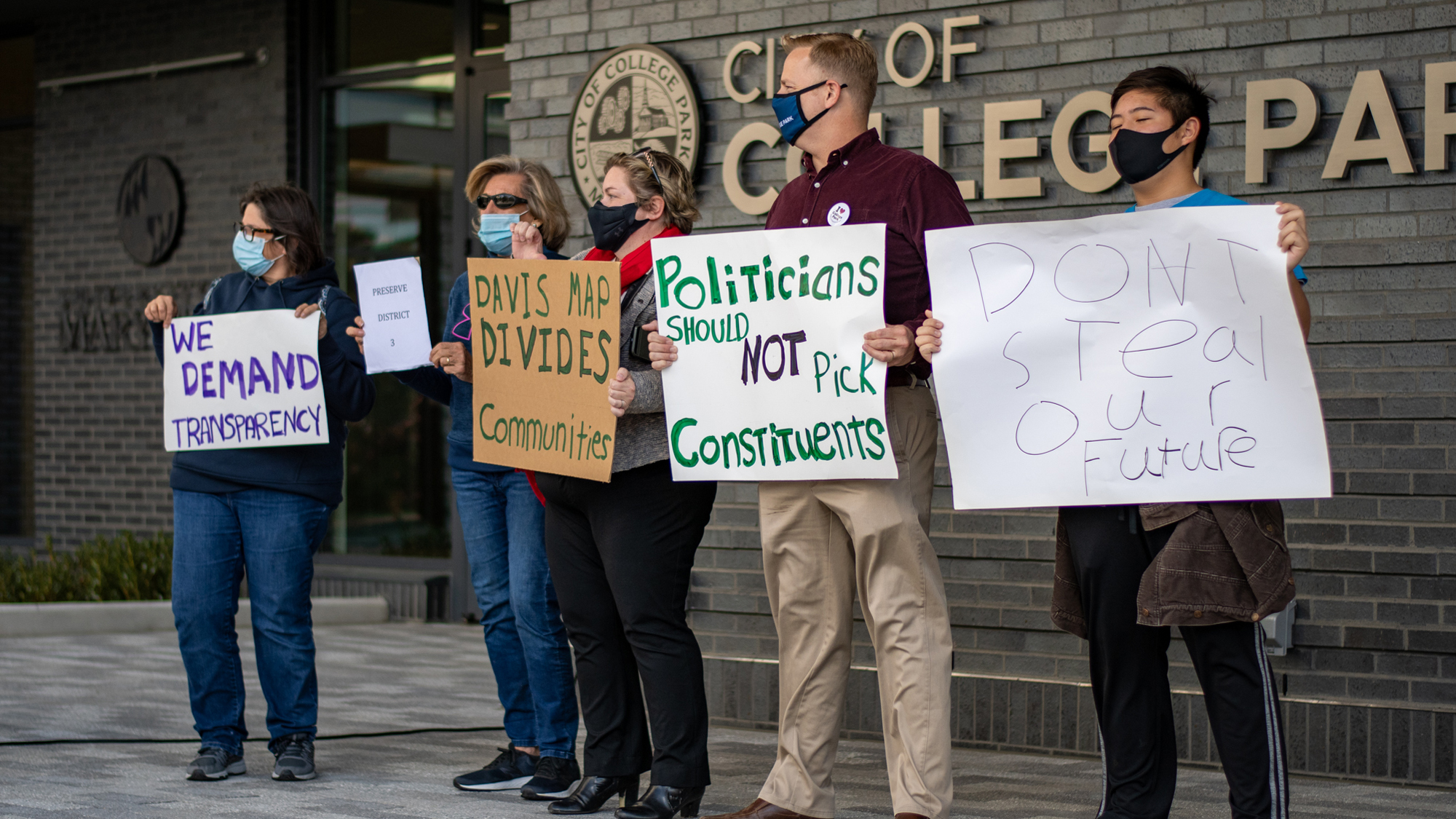After a controversial county council decision to redraw Prince George’s County districts, some College Park officials are reexamining their relationship with the county council.
City council members say the new decision might impact how the city works with the county council, especially after the county voted in favor of redrawing lines such that key neighborhoods in College Park were divided.
The new county council districts could disempower county council members that represent College Park, highlighting the need for a more assertive city government, said District 3 city council member John Rigg.
“We can’t trust the county government to do this for us anymore,” Rigg said. “The county government has shown that its governance model is too unstable and too beholden to commercial interests.”
Rigg wants to see the city gain control over its stormwater management capacity, especially since the districts will divide upstream and downstream watersheds in College Park. City control over general permits is also an avenue Rigg wants to pursue with the city council, to ensure county processes don’t encumber residents — processes which have historically been unpredictable.
It’s also unclear what implications redistricting will have on county council elections. Former District 3 county council candidate Eric Olson wants to run in the next county council election, but found his home moved to District 1 with the new map. Now, he’s weighing his options for the next steps.
[Amid fierce dissent from residents, Prince George’s County Council backs redistricting map]
There are also some concerns about the effect redistricting will have on the city’s relationship with the University of Maryland. Mayor Patrick Wojahn pointed out the university has long relied on close ties with residential neighborhoods in College Park, which often house faculty, staff and student tenants.
“I’m optimistic that the partnership between the university and the community is strong, and we’re continuing to grow that,” Wojahn said. “But it won’t help that we’ll have two different county council members representing those areas.”
Communities in College Park, such as the historic Lakeland neighborhood, have also been divided, which could hamper the city’s ability to address restorative justice in a unified way, Wojahn explained.
Incoming District 3 council member-elect Stuart Adams, District 1 council member Kate Kennedy and District 4 council member Maria Mackie stressed the importance of the At-Large elections in the upcoming cycle. At-Large seats represent the county as a whole, rather than specific districts.
Both At-Large county council members — Calvin Hawkins and Mel Franklin — voted in favor of redistricting without doing any meaningful community outreach, said Rigg.
“Those At-Large seats may not be as solid as people think they are and I think that that is where folks may be focusing,” Kennedy said.
[College Park Council to send letter opposing Prince George’s County redistricting plans]
Both At-Large council members are currently running unopposed, but the act of not voting for them would be one way to hold them accountable for their decision, Mackie said.
Adams further emphasized that while it is essential to continue collaborating with the county council, the city should look towards prioritizing and activating the student vote in the upcoming election.
“You’re given a hand to play, and you need to play it in the way that best benefits the community,” Adams said.
Mackie noted that the city council will be discussing potential steps to combat the effects of redistricting at an upcoming work session in the new year. Still, the decision is likely to confuse residents about who their representatives are and complicate city partnerships with organizations such as Prince George’s County Schools — which is also redrawing lines — and M-NCPPC, she said.
And although the county council’s decision disappointed him, Adams ultimately believes the city still has a responsibility to move past the decision and work with the council, especially given the ongoing pandemic and issues such as affordable housing.
“The next year needs to be a collaborative approach with the current sitting council members in Prince George’s County,” Adams said.



